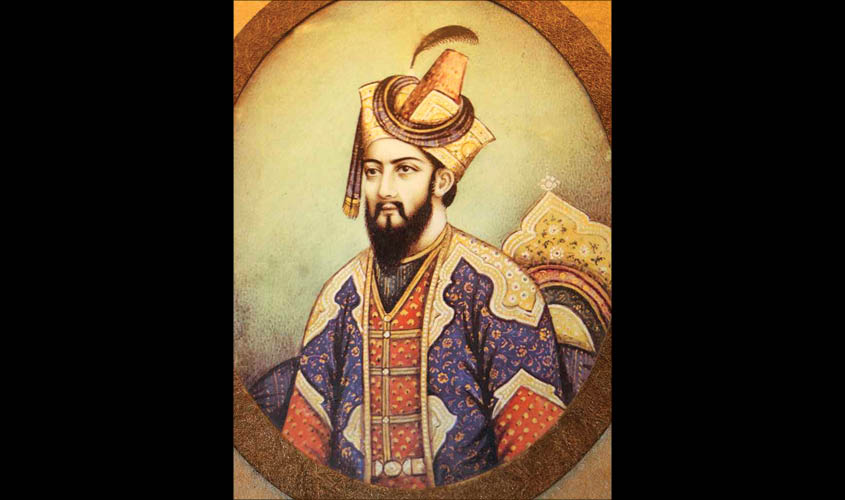How Babur saved Humayun’s life has been narrated in the past. This book tells what actually happened.
Babur Nama is among the literary treasures available to man. In his introduction to the 2006 edition, the well known Indian author Dilip Hiro wrote, “Babur Nama covers geography, astronomy, statecraft, military strategies and weapons, battles, large and small flora and fauna, biographic and family chronicles, pen portraits of potentates, countries and artists, social mores, poetry, music and paintings. rowdy wine parties, tours of historical monuments, and reflections on the human condition.” Not many would be aware that certain phrases and words in the book are in use every day, nimak haram, false to one’s employer; hamesha, always; bakhshish, gift; maidan, plain; and julab, laxative.
Babur learnt the Hindi names of the months of the year: Chait, Baisakh, Jeth, Asarh, Sawan, Bhaadon, Kuwar, Kartic, Aghan, Paush, Magh and Phalgun.
Similarly, he could name the days of the week: Sanichar is Saturday; Ravivar is Sunday; Somvar, Monday; Mangalvar, Tuesday; Budhvar, Wednesday; Brahispativar, Thursday; Shukarvar, Friday.
In Babur Nama, the Kohinoor is mentioned, perhaps the first time ever. Humayun had defeated the ruler of Gwalior, Bikramjit in the early 1520s. “After his defeat, the Gwalior ruler…made a voluntary offering of a mass of Jewels and valuables, among which was the famous diamond… the reputation of the diamond, later of be called was Kohinoor that every appraiser had estimated its value at two-and-a-half days’ food for the whole world… Humayun offered the famous diamond to me… I just gave it back to him.”
Various versions of how Babur saved Humayun’s life have been narrated over the centuries. In Babur Nama are given what actually happened. Humayun’s illness could not be diagnosed by the royal physicians. Babur rejected the advice of offering the Kohinoor “for pious causes to win the restoration of Humayun’s health”. Instead he decided to sacrifice his life to save his son. Babur, “circumambulated Humayun’s sick bed three times, praying, ‘O God! If a life be exchanged for a life, I Babur, hereby offer my life for Humayun’s. Later that day Babur fell ill. Humayun recovered. Babur died a few months later on Monday 5 December 1530. He was 47 years old.”
***
L.I. Parija and I were at St. Stephen’s College several years ago. In 1952 we both appeared for the Civil Services Examination conducted by the Union Public Service Commission. We both passed. I opted for the Indian Foreign Service, IFS. He selected the Indian Administrative Service, IAS.
I am reading his book, Fate takes a Hand, which he sent me last week. He opted for the Odisha cadre. He had an outstanding career, retiring as Chief Secretary. He was a brilliant cricketer. He captained the Odisha Ranji Trophy cricket team. He is also a first rate bridge player.
Lulu, everyone called him by that name. Lalat Indu Parija is his full name. He excelled in every job he held, including a five-year spell as Deputy General Manager of Rourkela Steel Plant. By the time he left steel production had gone up appreciably and Lulu had skilfully resolved the trade union’s problems. He was considered fair minded, a fine administrator, above all he earned the trust of those he worked for and with him. Parija took his jobs and duties seriously, but was never self righteous, L.I. Parija retired on 31st October 1990, after 39 years in the IAS.
The most fascinating part of the book is the chapter, “A Son’s Tribute” to his father, Dr Prana Krushna Parija (1891-1978) MA Cantab., IES.
Lulu writes about his remarkable father, who was an internationally known and respected botanist, Sanskrit scholar, brilliant teacher, MLA and MP, founder of institutions, visionary educationist, host to C.V. Raman, Subhas Chandra Bose, C. Rajagopalachari, Sarojini Naidu and Shanti Swarup Bhatnagar. A recipient of the OBE—Order of the British Empire—in 1943 and Padma Bhushan in 1955, and much more: “Sometimes in solitude, when I think back on my father’s life and achievements, for this poor boy who was forced to walk 36 miles to come home from school at Cuttack, who could not afford a pair of shoes till he was 23 years of age and received a scholarship to England (Cambridge), was his maintenance of absolute, unimpeachable integrity as also a solicitude for the poor and the needy throughout his life.” Prana Krushna Parija would have found the gates of heaven wide open to welcome him.
The grateful people and government of Orissa have acknowledged his exceptional qualities by naming a road after him. The library in Utkal University too is named after him.

